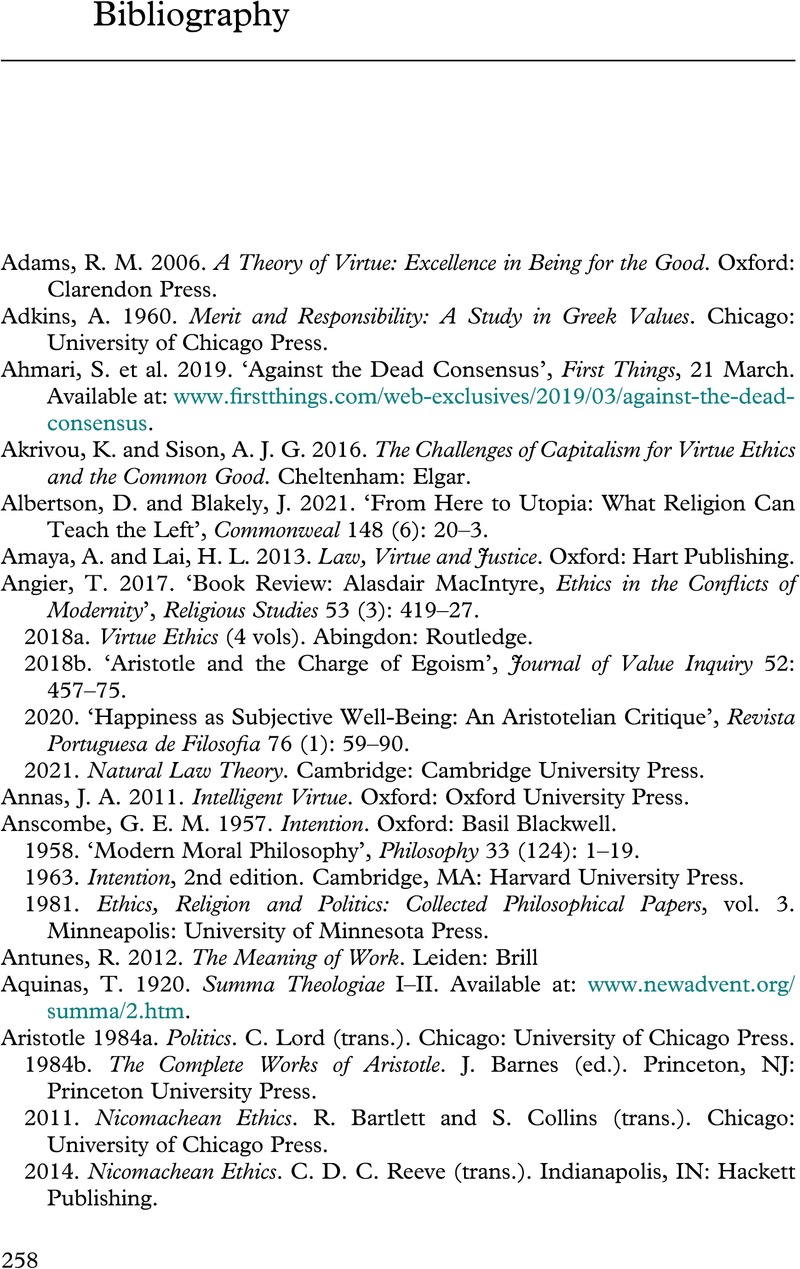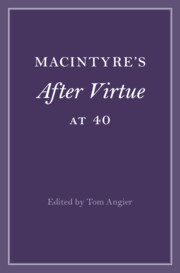Book contents
- MacIntyre’s After Virtue at 40
- Cambridge Philosophical Anniversaries
- MacIntyre’s After Virtue at 40
- Copyright page
- Contents
- Contributors
- Introduction
- Part I After Virtue and Ethical Theory
- Part II After Virtue and Political Theory
- Part III After Virtue and Narrative
- Part IV After Virtue beyond Philosophy
- Bibliography
- Index
- References
Bibliography
Published online by Cambridge University Press: 12 October 2023
- MacIntyre’s After Virtue at 40
- Cambridge Philosophical Anniversaries
- MacIntyre’s After Virtue at 40
- Copyright page
- Contents
- Contributors
- Introduction
- Part I After Virtue and Ethical Theory
- Part II After Virtue and Political Theory
- Part III After Virtue and Narrative
- Part IV After Virtue beyond Philosophy
- Bibliography
- Index
- References
Summary

- Type
- Chapter
- Information
- MacIntyre's After Virtue at 40 , pp. 258 - 275Publisher: Cambridge University PressPrint publication year: 2023



